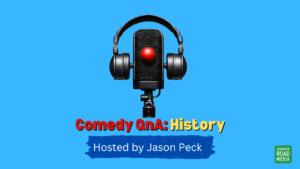What follows it is a bit of a rant about public speaking, for that I apologize, but it’s here because I needed to get it off my chest and stick up for all those who think situations like this are representative of all public speakers.
They’re not.
I was in a temporary office job late 2006 and they had arranged for an external speaker to attend. This can invariably be a risky affair because, as a temp, not only do I rarely have a clue as to the subject matter, but I also have to sit through speakers of varying quality.
Over the years in various jobs like this I have suffered a fair few people who can’t do public speaking. And this time was no exception. sigh. I have to say that he was probably one of the worst public speakers I’ve seen.
And that comment can be trademarked!
Even though some of the subject matter went over my head, my fellow colleagues (most of whom had been there for a numberof years) told me that I wasn’t alone in thinking him bad.
Firstly, he had his “notes” on his laptop and kept leaning into it to read off the screen. They weren’t even notes for him they were points projected onto the screen behind him. Tonnes of unreadable points at that. His hesitations would’ve put Eddie Izzard to shame.
And then, when he spoke, he swallowed his words, rambled and digressed repeatedly. Someone obviously told him that all he needed to do was speak as he does in everyday life because he certainly did that… and was dull as hell!
It’s public speaking not public waffling on.
He didn’t even uses pauses correctly. He was halfway through a sentence when he drank some water and then went back to the sentence he’d already begun.
Surely if you’re going to drink water as a public speaker, either because you need it or because it’s a timed pause, then try to at least do it before or after a sentence, unless it helps with a punchline.
Like the Irish comedian Dave Allen used to do.
But then there’s a danger of talking into the glass which, thankfully, he didn’t do. Even though you may want to speak naturally you still have to make points that need to be reiterated.
You don’t just tell people everything you know about a subject and keep going until you’ve covered all the items on the screen. For me a public speaking speech should sound naturall; you should capture your own speaking rhythm.
But this should be refined and edited to cut the useless words, “er… right? You know what I mean?” If it’s appropriate for the speech, and for you, then try to lace it with humour.
Or if it’s not, you could be amusing about yourself in your intro and then segue into the speech proper. But it might also be worth writing the speech down and learning it until it sounds natural, because it was clear to me that this guy hadn’t.
Or if not that then at least writing out the points which need to be covered and then practising over and over again until you’re really familiar with what you’re going to say and it’s framed in the best possible way.
The scary thing is he was a Chief Executive of the company he was representing and so everything I’m talking about here should be basic stuff for someone of his level. He obviously hadn’t bought studied any public speaking manual. At least in my humble opinion.
But it is amazing how often I’ve suffered through similar speeches which are delivered by people who are more than competent at their job, but lousy at conveying an important message.
I know that many of the people that they are speaking do know the subject really well, so they can essentially chat about a topic. Unfortunately for them, and us listeners, this is not good public speaking.
But there are always going to be people like me taking the minutes, or others in different scenarios, who are not going to be able to follow the speech. Generally because the public speaker in question contradicts, digresses and doesn’t speak loudly enough – to outline a just few problem areas.
In my experience, the amount of public speakers I’ve seen who can deliver a clear and concise speech, who work in either the public or private sector, I can count on the fingers of one hand.
Which is, frankly, absurd. This stuff should be prerequisite training. If it’s not allowable by budget constraints then people should investigate and research what they need to do in order to improve in this area.
But unfortunately, there aren’t that many people around with either the courage or the knowledge to be able to tell them. Maybe it should be mandatory…?
If not then Paul Evans’ ebook Instant Speaking Success should be required reading. It’s really effective with structuring. I go into further review of Paul’s product elsewhere on this blog.



